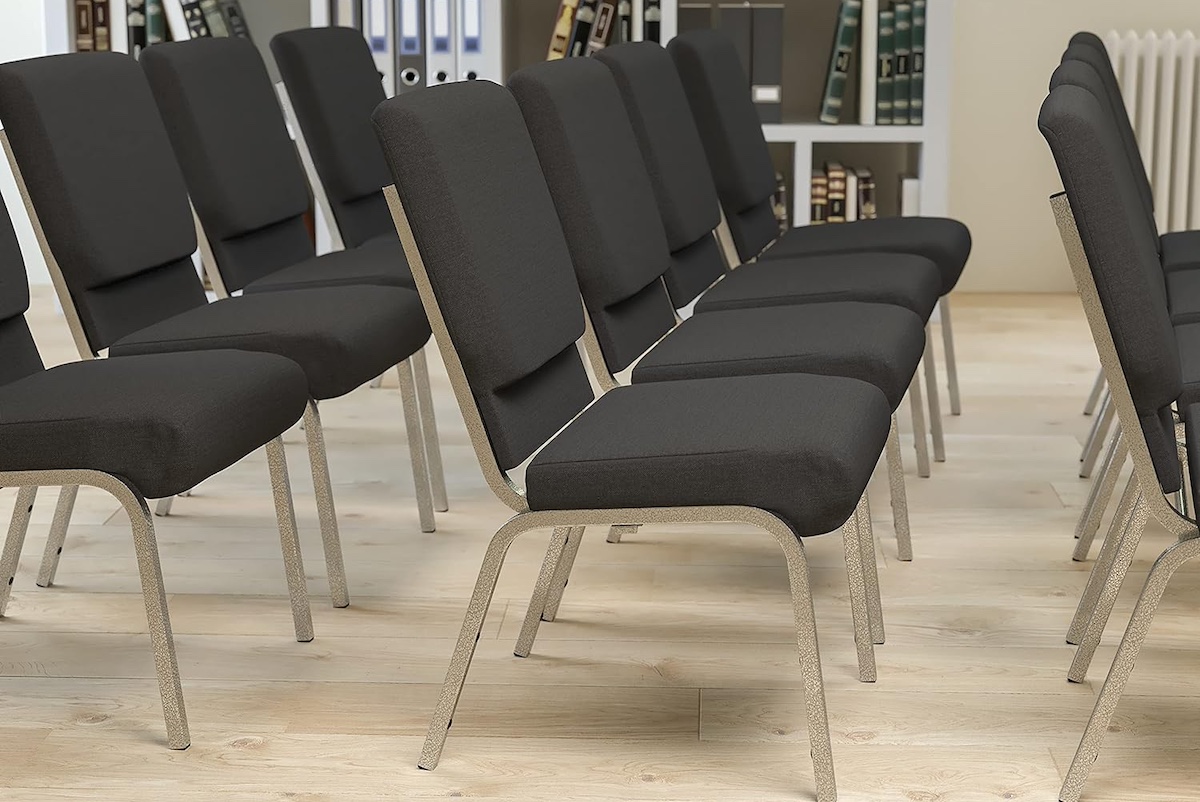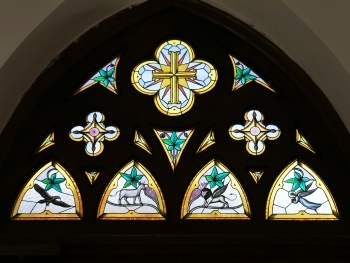For centuries, churches have served as more than just places of worship. They're community hubs, sanctuaries of solace, and stages for life's most important ceremonies. But amidst the grandeur of stained glass windows and soaring ceilings, there's an often-overlooked element that plays a crucial role in the overall experience: church chairs.
The church chair industry might not be the flashiest, but it's a fascinating one, steeped in tradition, innovation, and the pursuit of creating a comfortable and inspiring space for congregations. Let's delve into the world of these unassuming furnishings, exploring the history, design considerations, and the key players in this unique market.
A History of Seating the Faithful
The story of church chairs stretches back centuries, mirroring the evolution of church architecture itself. In the early days, simple benches or pews were the norm, often made from sturdy wood like oak or maple. These provided a basic level of seating but weren't exactly known for comfort during long sermons.
The Industrial Revolution ushered in a new era of church chair design. Mass production techniques made chairs more affordable and allowed for experimentation with materials and styles. Upholstered seating became more common, offering a welcome respite from the hardness of wooden pews.
The 20th century saw a continued focus on comfort and functionality. Steel frames became popular for their durability, while innovations like foam padding and ergonomic design prioritized the physical well-being of parishioners. Today's church chair industry offers a wide variety of options, from traditional pews to contemporary, stackable chairs, catering to diverse preferences and budgets.
Design Considerations: Balancing Comfort, Aesthetics, and Functionality
Designing church chairs goes beyond just aesthetics. Here are some key factors manufacturers consider:
- Comfort: Sitting for extended periods shouldn't be a test of endurance. Lumbar support, padded seats, and proper backrests are crucial for promoting good posture and minimizing fatigue.
- Durability: Church chairs are subjected to daily wear and tear. High-quality materials like steel frames and stain-resistant fabrics ensure chairs withstand years of use.
- Aesthetics: Church chairs should complement the overall architecture and ambiance of the space. From classic wood finishes to modern, sleek designs, there are options to suit any style.
- Functionality: Needs vary depending on the church. Some may prefer permanently fixed pews, while others might opt for stackable chairs for better space utilization. Features like built-in cup holders or book racks can add a touch of convenience.
The Major Players: Who Makes Our Church Chairs?
The church chair industry is a niche market with several established players. Here are a few prominent names:
- Church Chair Industries Inc.: Based in Georgia, USA, Church Chair Industries boasts over 40 years of experience in the industry. They emphasize innovation, quality, and a commitment to "flexible seating" solutions for churches.
- ComforTek Church Seating: Specializing in worship seating, ComforTek prioritizes comfort with features like cold-cured foam and supportive backs. Their chairs are known for durability and are designed to create a welcoming atmosphere in sanctuaries.
- Church Chairs of America: Focusing on American-made products, Church Chairs of America offers high-quality chairs with features like interlocking systems for pew-like rows and ergonomic design.
Beyond the Business: The Impact of Church Chairs
Church chairs play a more significant role than simply providing a place to sit. They can influence the overall feel of a service, fostering a sense of community and togetherness. Comfortable seating allows parishioners to focus on the message being delivered, promoting a more enriching spiritual experience.
The industry itself provides jobs, supports local economies, and contributes to the overall well-being of religious institutions. By offering high-quality, functional chairs, church chair manufacturers play a part in ensuring that houses of worship remain welcoming and comfortable spaces for congregations for generations to come.
The next time you settle into a church chair, take a moment to appreciate the thought and care that went into its design and construction. Church chair companies are the quiet contributors behind the scenes, ensuring a comfortable and inspiring environment for spiritual reflection and community. So, the next time you visit your place of worship, give a silent thanks to these unsung heroes who make Sundays – and every other day of service – a little bit more comfortable.




